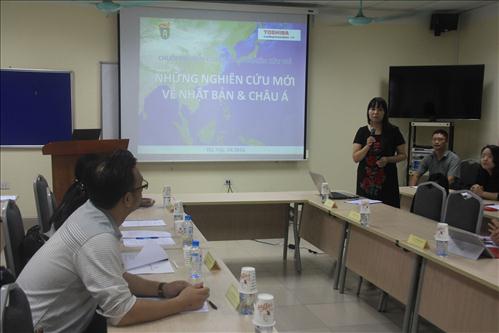
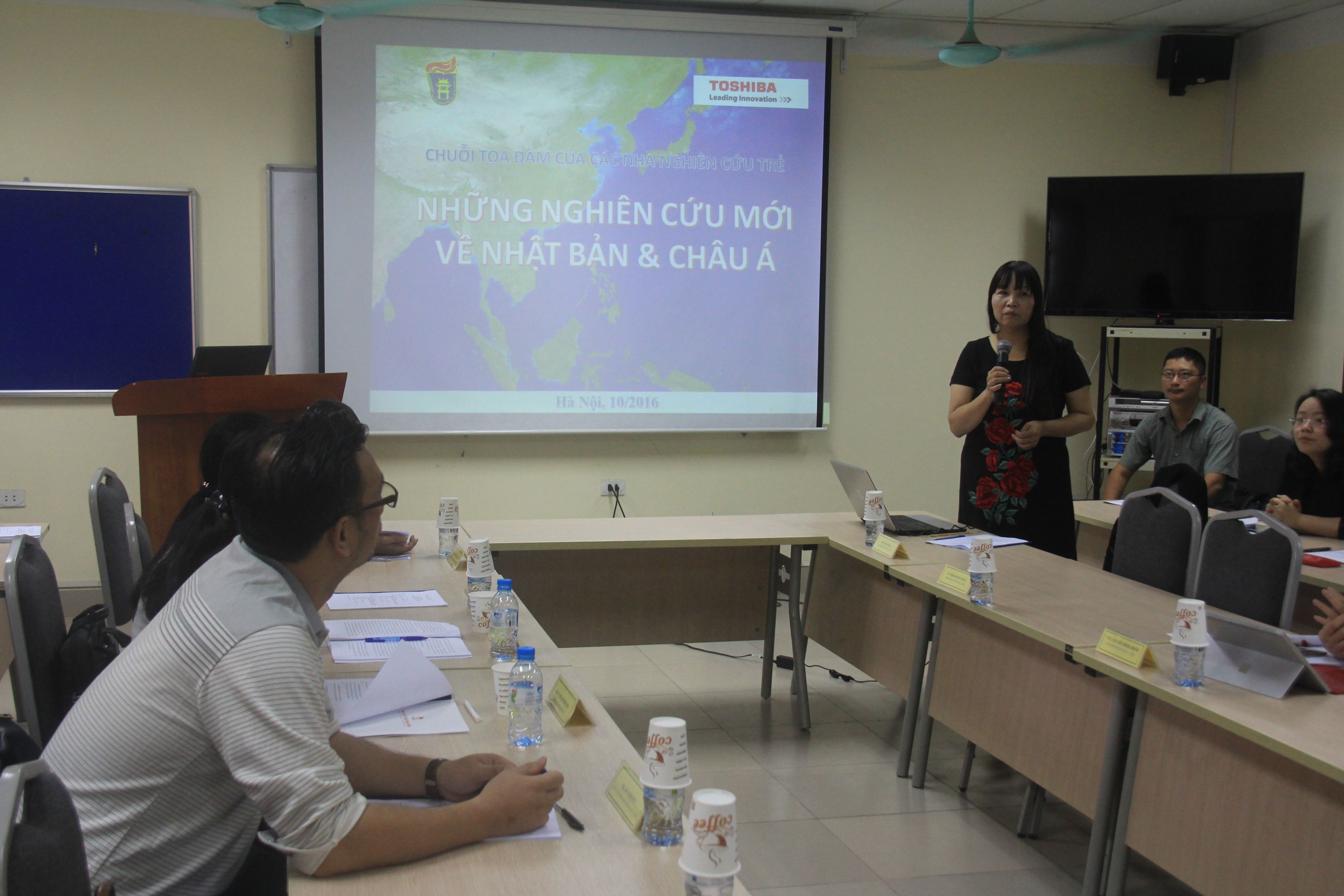
At the seminar, Dr. Pham Hoang Hung (Faculty of Oriental Studies) presented a research paper with the topic "Cool Japan Strategy from the phenomenon of Mobile Game Pokemon Go". The term Cool Japan was first officially mentioned in 2004 in the Blue Book of the Japanese Ministry of Foreign Affairs. In it, the Japanese Government acknowledged that "Japanese popular culture has attracted worldwide attention with the name Cool Japan". After that, the Ministry of Economy, Trade and Industry upgraded it to Cool Japan Strategy since 2011. By generalizing and elevating popular culture as a new strength, a new face, a new diplomatic strategy, Japan has been able to focus its resources to maintain and enhance its national position in the process of global cultural exchange. Dr. Pham Hoang Hung's research started from learning about the phenomenon of Pokemon Go, then expanded and placed it in the context of how the Cool Japan strategy is carried out. At the same time, the study also initially explores the position of Cool Japan in the larger strategy of building soft power for Japan. The article also offers some opinions on the conditions and suggestions for Vietnam to build its own cultural policy.
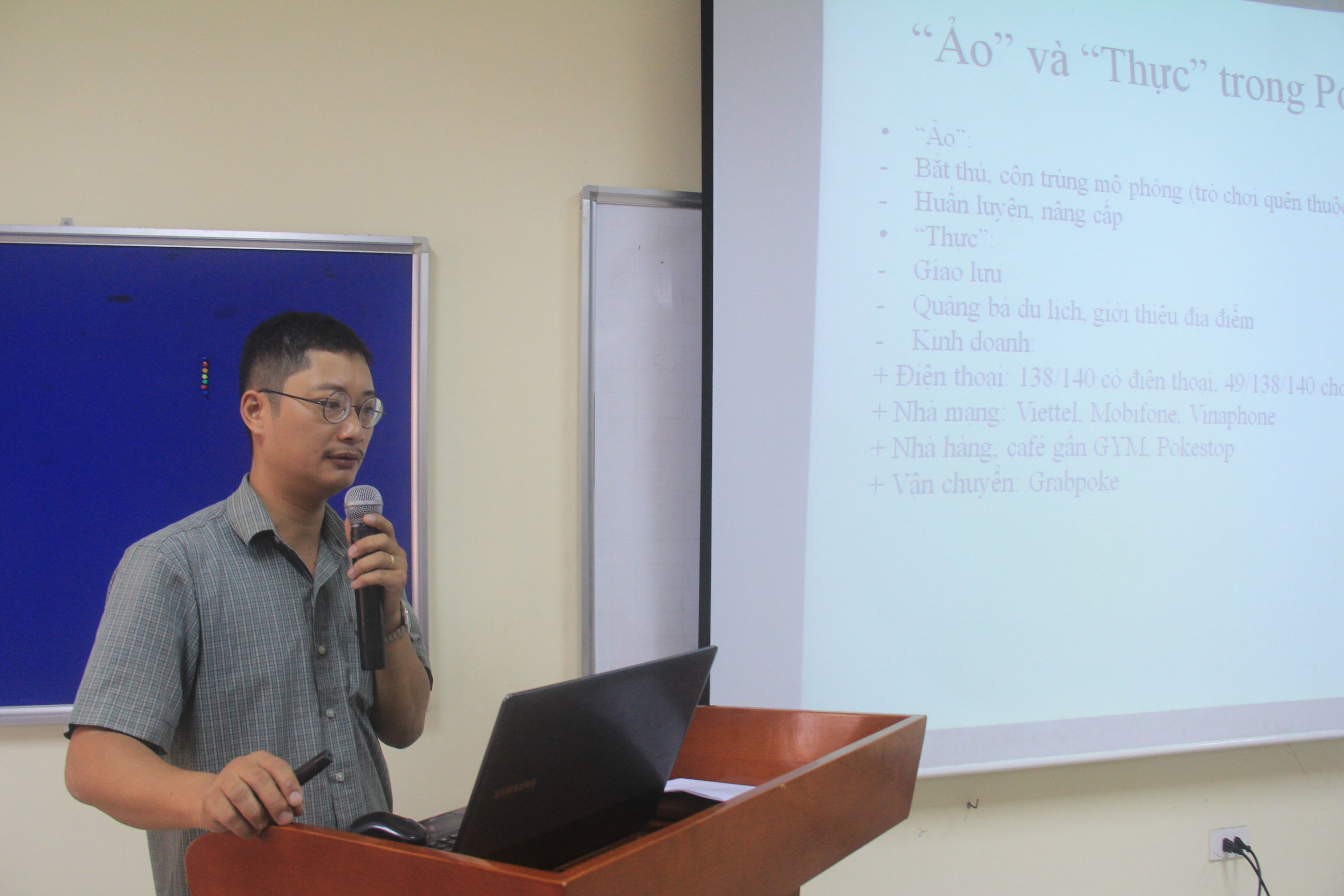
The second report presented at the seminar was “Some experimental studies on Korean vowels and experiments on vowels /θ/ and /y/ of Vietnamese students learning Korean” by young scientist Nguyen Minh Chung (Faculty of Oriental Studies). The report presented a number of typical Korean vowel experiments, and at the same time conducted experiments and compared the Korean vowels /θ/ and /y/ pronounced by Vietnamese students with the equivalent pronunciation of native Korean speakers. From the experimental results, the article pointed out that the students’ unnatural pronunciation was due to a lack of understanding of the nature and phonetic theory of the vowels /θ/ and /y/.
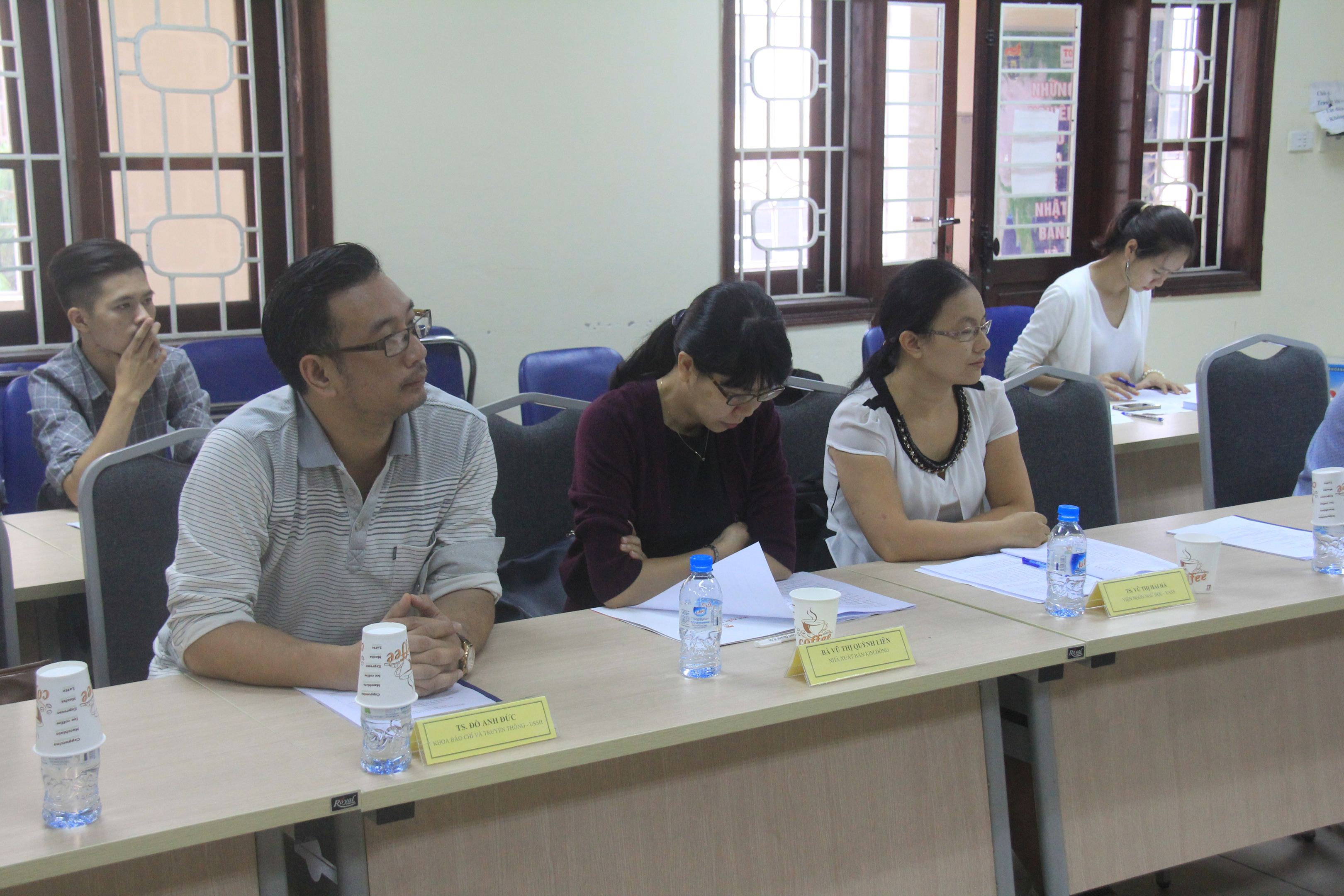
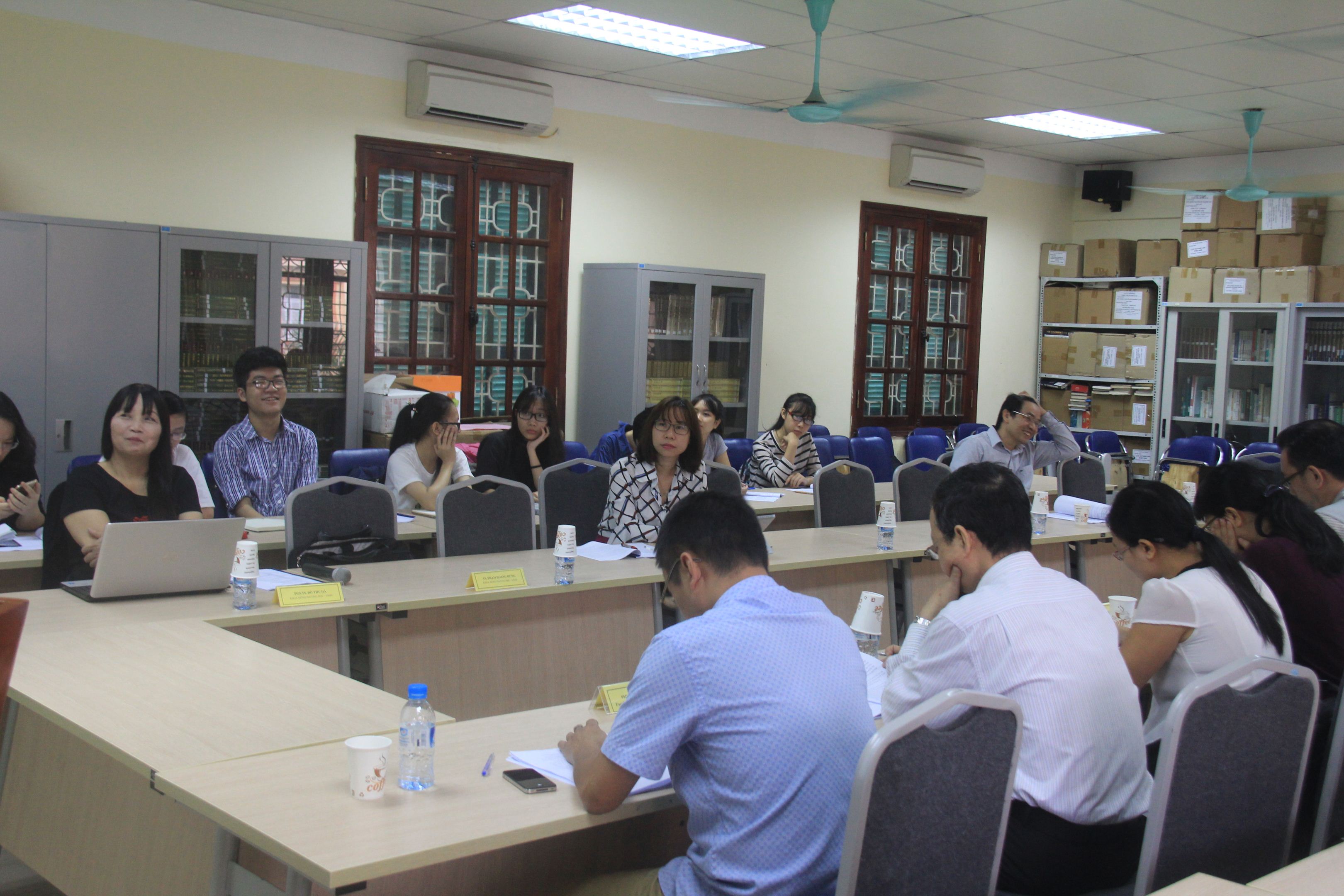
Author:Thanh Ha
Newer news
Older news